Ever wondered what Kwanzaa is, who celebrates it, and why it matters? Founded by activist Maulana Karenga in 1966, Kwanzaa is a week-long celebration that takes place from December 26 to January 1. It highlights the importance of African heritage and culture, focusing on seven core principles: Umoja (Unity), Kujichagulia (Self-Determination), Ujima (Collective Work and Responsibility), Ujamaa (Cooperative Economics), Nia (Purpose), Kuumba (Creativity), and Imani (Faith).
Kwanzaa serves as a meaningful cultural reaffirmation for Black communities around the world, promoting values that foster resilience and connection. While primarily celebrated in the United States, Kwanzaa has also found a welcoming home in Canada. In cities across the country, Kwanzaa festivities offer opportunities for cultural exchange and community bonding, showcasing events such as candle lighting ceremonies, workshops, and performances that honor African traditions and the principles of Kwanzaa.
Looking for a great place to celebrate Kwanzaa? Read on.
Ottawa, Ontario

Ottawa offers a heartfelt celebration of Kwanzaa that brings together the city’s diverse African and Caribbean communities. One of the most notable events is the Ottawa Kwanzaa Celebration, organized annually by the African Canadian Association of Ottawa (ACAO). This gathering features a mix of traditional and contemporary African and Caribbean cultural expressions, including live drumming, storytelling, and performances by local artists and dance troupes. Attendees can also explore market stalls offering handmade crafts, jewelry, and textiles, or sample authentic dishes from African and Caribbean cuisines. The event often includes a candle-lighting ceremony and discussions led by community leaders.
Toronto, Ontario

Toronto offers a wide array of Kwanzaa events that showcase the city’s African and Caribbean communities. The Greater Toronto Area hosts annual celebrations organized by groups such as the Afro-Caribbean Cultural Centre and the Ontario Black History Society. These events often feature cultural performances, including African drumming, storytelling, spoken word poetry, and dance, reflecting the principles of Kwanzaa in action.
One highlight is the Kwanzaa flag-raising ceremony, which has been held in various locations, including Nathan Phillips Square. This ceremony symbolizes community unity and is accompanied by speeches from local leaders and activists. Toronto also offers family-friendly workshops that focus on crafts, cooking, and learning the history of Kwanzaa, making the celebrations accessible to people of all ages. Marketplaces are another key feature of Toronto’s Kwanzaa festivities, offering opportunities to purchase handcrafted goods, African art, and textiles.
Boston, Massachusetts
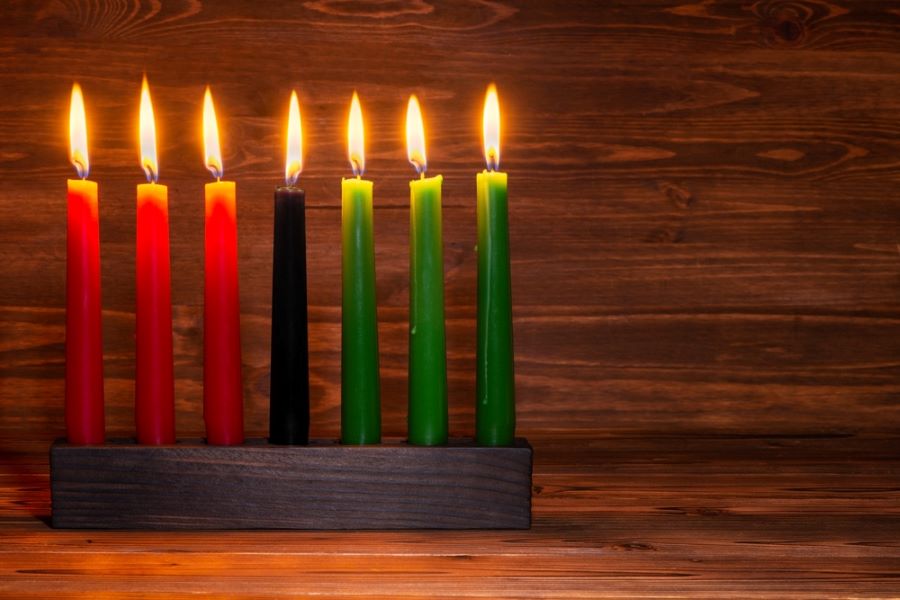
Boston celebrates Kwanzaa with a variety of events that bring the city’s rich African American heritage to life. One of the standout gatherings is the Boston Community Kwanzaa Celebration, which features music, African drumming, spoken word performances, and dance. These events are often hosted at venues like the Roxbury Branch Library and local community centers, offering spaces for families and individuals to engage in the traditions of Kwanzaa.
Organizations such as the Museum of African American History and the Black Community Information Center play a significant role in organizing and promoting Kwanzaa celebrations. Highlights often include the ceremonial lighting of the Kinara, accompanied by reflections on the seven principles of Kwanzaa, and discussions about their relevance to modern-day community building and empowerment.
Philadelphia, Pennsylvania
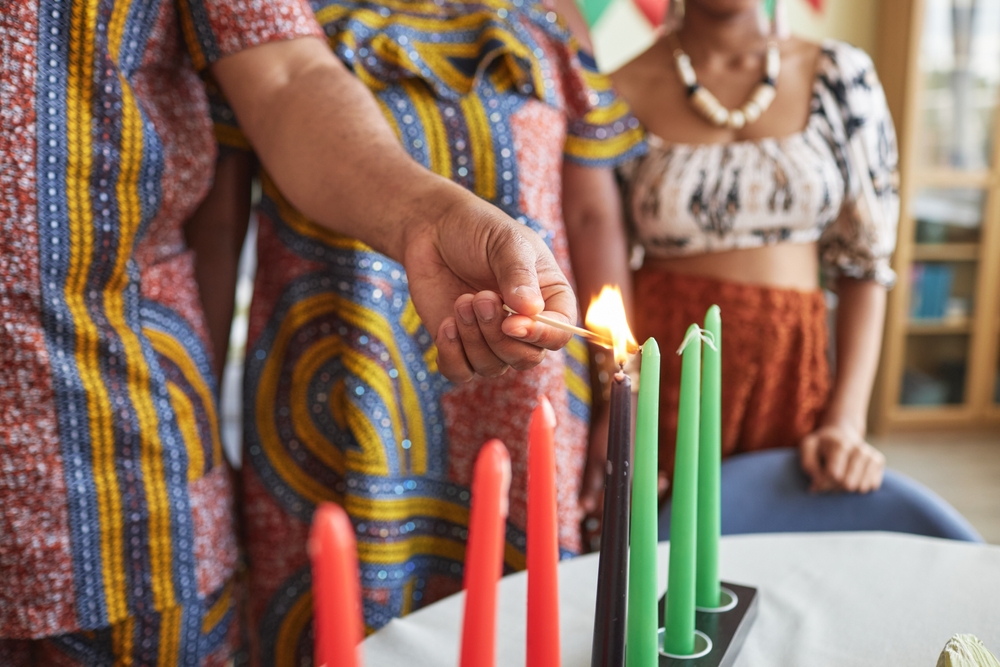
Philadelphia offers an array of Kwanzaa celebrations, reflecting the city’s strong African American heritage. A key event is the annual celebration at the African American Museum in Philadelphia, where visitors can enjoy live performances, drumming, spoken word poetry, and dance. The museum also hosts educational workshops and storytelling sessions, making it a hub for families looking to engage with the traditions of Kwanzaa. Local organizations like the Keepers of the Culture oral storytelling group and the Odunde Festival organizers contribute to the celebrations by offering cultural programming throughout the week.
Another prominent feature of Philadelphia’s Kwanzaa festivities is the nightly Kinara lightings at Malcolm X Park, which emphasize the seven principles of Kwanzaa. These gatherings often include speeches from community leaders and reflections on unity, self-determination, and cooperative economics. The park’s atmosphere is enhanced by music, food vendors, and craft stalls, creating a welcoming space for community connection.
Atlanta, Georgia
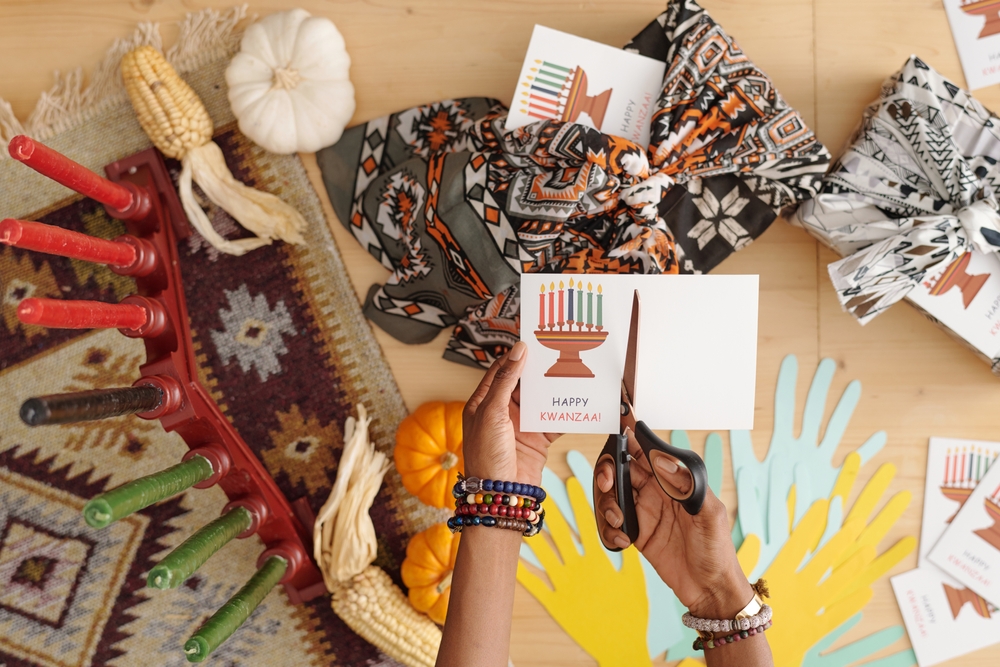
Atlanta’s Kwanzaa celebrations are a reflection of the city’s deep-rooted African American cultural heritage. The National Center for Civil and Human Rights often hosts Kwanzaa events, combining cultural performances, educational workshops, and community discussions that emphasize the seven principles of Kwanzaa. These gatherings highlight unity, self-determination, and collective work, with performances from local artists, storytellers, and drumming groups adding a lively spirit.
The Martin Luther King Jr. Center for Nonviolent Social Change is another focal point for Kwanzaa celebrations in Atlanta. Events here often include the ceremonial lighting of the Kinara and reflections on how Kwanzaa principles align with Dr. King’s teachings. Attendees can also explore the King Center’s exhibits as part of their visit, deepening their understanding of the civil rights movement and its ties to Kwanzaa’s values.
Los Angeles, California
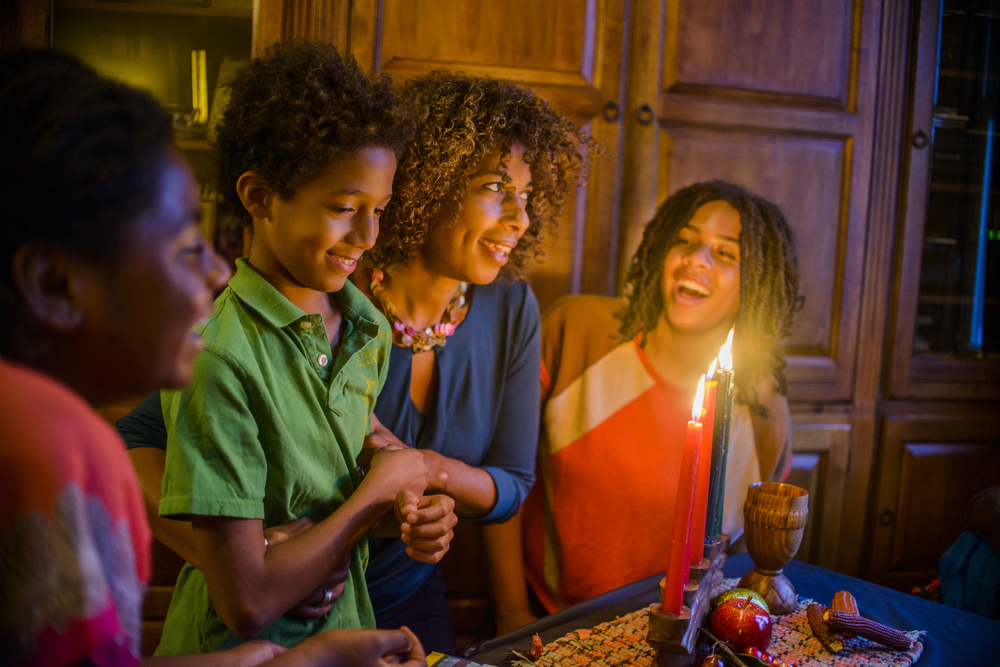
Los Angeles offers Kwanzaa celebrations that honor African heritage and foster community connection. One of the most notable events takes place at the California African American Museum, where attendees can experience traditional drumming, dance performances, and spoken word presentations. The museum also hosts art workshops and storytelling sessions for families, ensuring that visitors of all ages can engage with the meaning of Kwanzaa. Local organizations, such as the Pan African Film Festival, also contribute to the city’s celebrations by hosting events that showcase art, music, and the importance of community.
You Might Also Enjoy: Celebrating Black History Month: Taking a Heritage Tour Through Africa
St. Louis, Missouri
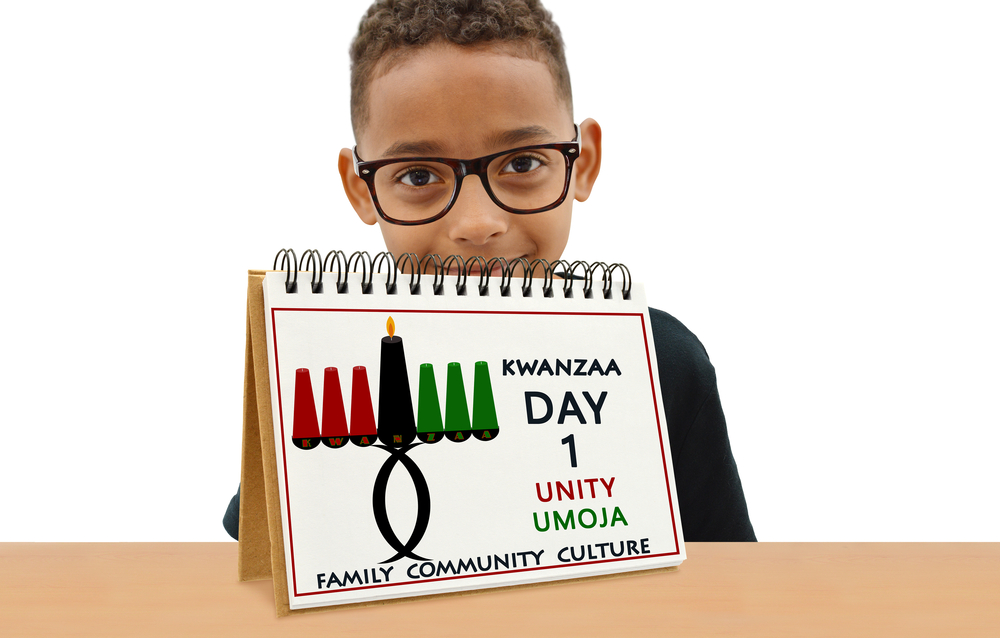
St. Louis embraces Kwanzaa with heartfelt celebrations that highlight the city’s commitment to community and African heritage. One prominent event is hosted at the Sheldon Concert Hall, where attendees can enjoy African drumming, live music, storytelling, and dance performances. The Sheldon often partners with local schools and organizations to create a family-friendly atmosphere that educates and entertains.
The St. Louis Art Museum also contributes to the festivities with Kwanzaa-themed workshops and events, offering opportunities to learn about the seven principles of Kwanzaa through art and cultural expression. These gatherings frequently include craft-making sessions where participants can create symbolic items such as unity cups and Kinara candles.
FAQs:
Q: Do you need to be of African descent to celebrate Kwanzaa?
A: No, while Kwanzaa focuses on African heritage, its principles of unity, creativity, and collective work can inspire anyone interested in celebrating.
Q: Are Kwanzaa events family-friendly?
A: Yes, most Kwanzaa events include activities suitable for all ages, such as storytelling, crafts, and community meals.
Q: Do I need to bring anything to a Kwanzaa celebration?
A: It’s a good idea to check event details, but many gatherings are open to all and may welcome contributions like food or handmade items.
Q: How can I learn about Kwanzaa before attending an event?
A: Many libraries and community centers offer resources and workshops about Kwanzaa, its history, and its principles before or during the holiday.
Q: Are there any costs associated with attending Kwanzaa events?
A: While many events are free, some may charge a small fee or accept donations to support community programs.
Q: Can non-religious individuals participate in Kwanzaa?
A: Absolutely. Kwanzaa is a cultural celebration, not a religious holiday, and welcomes participants of all beliefs.
Q: Are there specific foods associated with Kwanzaa celebrations?
A: Yes, Kwanzaa meals often feature African and Caribbean dishes, including stews, plantains, rice, and other foods that celebrate African heritage and culinary traditions.
Have you ever been to any of these Kwanzaa celebrations? Tell us about it in the comments below!


Leave a Reply